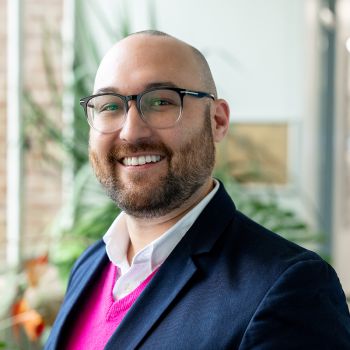News
Comment: The right questions for AI in biological research
Posted on behalf of: Genome Damage and Stability Centre
Last updated: Wednesday, 22 October 2025

Dr Luke Yates
By Dr Luke Yates
The field of structural biology has seen a seismic shift from advances in artificial intelligence (AI) with algorithms that can now accurately predict protein structures.
Uncovering protein structures once took years of painstaking experiments; now machine learning can correctly predict a 3D structure from its amino acid sequence. Whilst AI has transformed how we approach structural biology research, it is not a replacement for experimental work.
Talking with Dr John Jumper, a distinguished scientist at Google DeepMind who, alongside Demis Hassabis, was awarded half of the 2024 Nobel Prize in Chemistry for the development of AlphaFold - the protein structure prediction algorithm, he agrees.
“We’ve been doing computer simulations for a long time. We don’t want protein structures as the final goal. We want them because they help us understand biology and they help us make new hypotheses. And then we test those”.
Using AlphaFold to guide experimental work is now common. Researchers are also using AlphaFold to make new discoveries such as unveiling a new component of the DNA replication machinery or revealing proteins crucial for egg fertilisation.
The success of AlphaFold, and any machine learning algorithm, is directly linked to its training data. AlphaFold had the Protein Data Bank, a collection of ~240,000 experimental protein structures with, as Dr Jumper puts it, “very high-quality gatekeeping and curation that ensures that the data are available and reliable”.
If we want more AI-driven breakthroughs, particularly in health, disease, and the discovery of new medicines, we need to think carefully about what problem AI can solve, what experimental data we collect, and how we curate the data to train new AI models.
Dr Luke Yates is an Assistant Professor in the Genome Damage and Stability Centre and was a panellist on a three-part podcast series talking to leading figures in computational biology.
You can watch the episodes here:
Interview with Nobel Prize Winner John Jumper: AI's Next Frontier After AlphaFold
Charlotte Deane: AI, Drug Discovery, and the UK Advantage
Can AI Become the Scientist? James Zou on Virtual Labs at Stanford